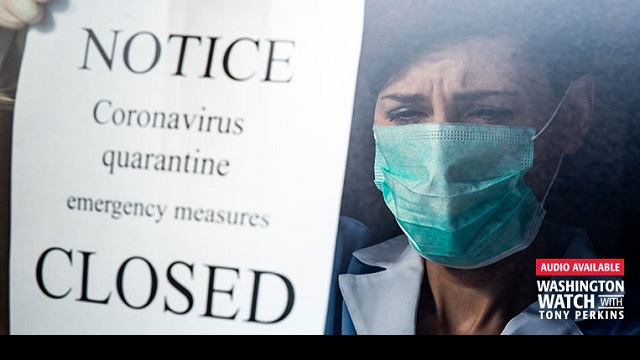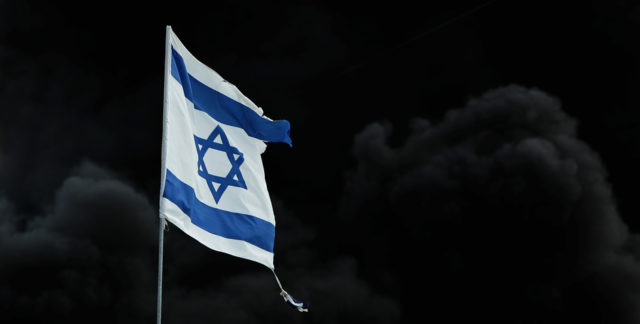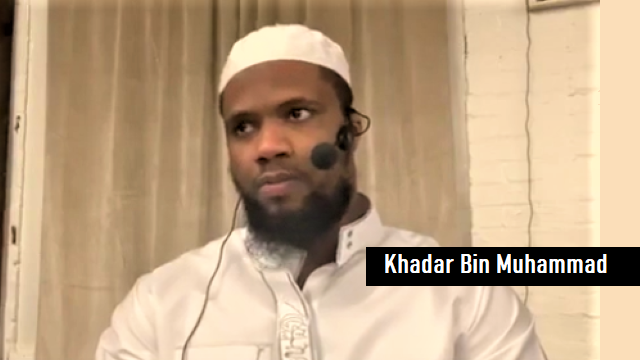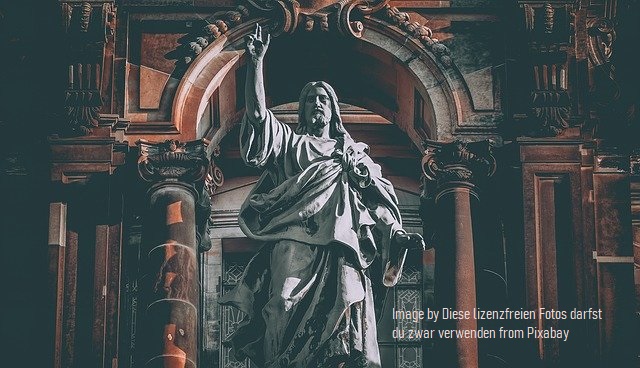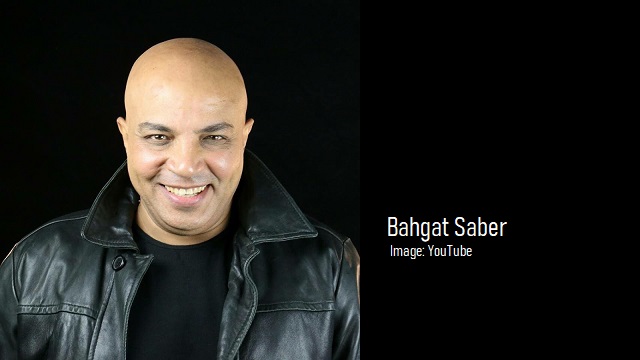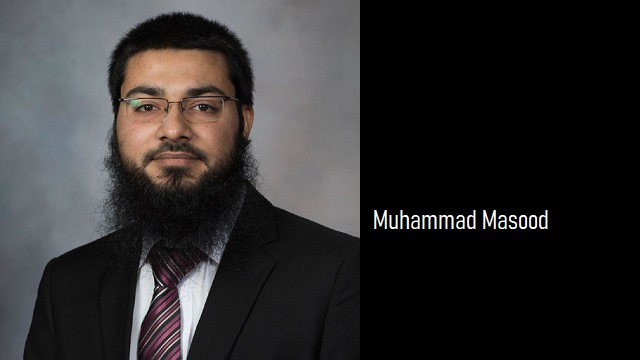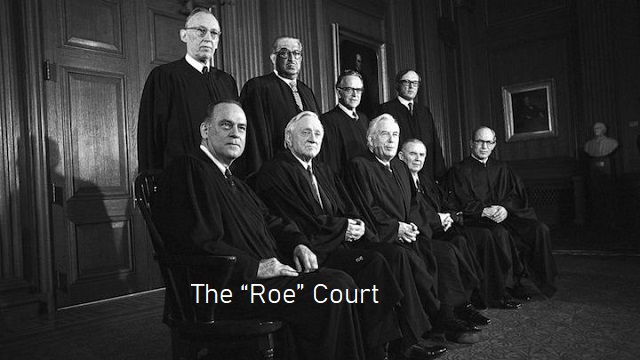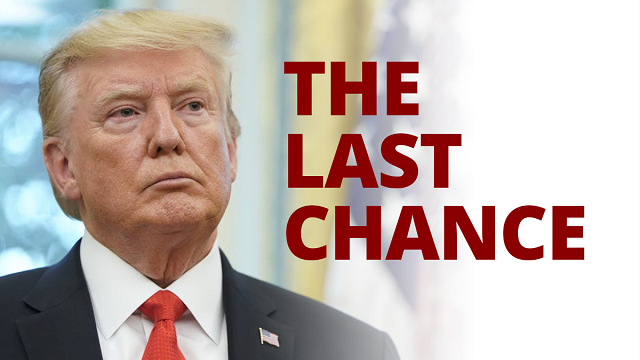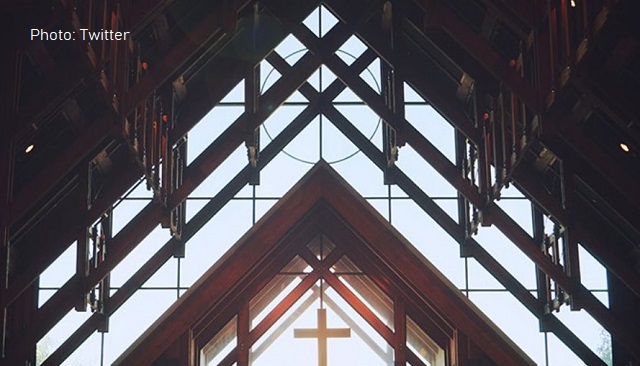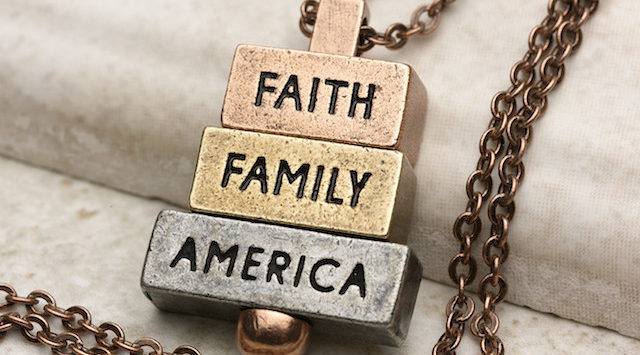
The coronavirus has drastically changed our world. But the uniqueness of this situation is that we are all facing the same thing together, while being apart.
The physical distance we are experiencing can be a great challenge. Schools, business, and churches have closed their doors for an indefinite period of time. But faith leaders from across America have a message of hope for you.
The Daily Signal asked a number of pastors, priests, and Christian leaders to share their insight on how we can all use this time of uncertainty well and how we can keep hope alive.
We hope that you are encouraged as you read the words of these faith leaders.
In these trying times, we must turn to the greatest document in the history of the world to promise freedom and opportunity to its citizens for guidance. Find out more now >>
Jason Peaks, associate pastor, NewSong Church, Vienna, Virginia
How do people have hope in a time of uncertainty?
What shall we as Christians say amidst such difficulty and troubling times? How can we find hope and encouragement? The diverse voices of news and media are loud and contradictory and confusion abounds. We are consumed by hearing anyone and everyone’s opinion of what to do and how to think in the COVID-19 crisis. And yet the Psalmist describes an uncommon posture, “For God alone, O my soul, wait in silence, for my hope is from Him.” Silence is undoubtedly a forgotten practice in this generation.
For many of us, silence is merely the act of not speaking; but the Desert Fathers, a collection of 3rd century monks, indicated silence was about listening to God. In our prayers, are we speaking more or listening more? What can be found in listening prayer? The Psalmist indicates hope and rest! The word hope in this verse means “cord, rope.” As we listen to God, we find He is throwing us a rope of hope to pull us into the future. If we embrace slowing down and stepping into silence with God, we will grow in our confidence of tomorrow’s reality and take hold of hope. Furthermore it is not just hope we find; we find God, the source of all hope, in our silence.
Fr. Theodore Trinko, National Shrine of St. Elizabeth Ann Seton and National Shrine Grotto of Our Lady of Lourdes, Emmitsburg, Maryland.
How can you use this time wisely?
In a culture which is accustomed to running 100 mph all day every day, the very idea of staying indoors for weeks or even months on end with limited interaction with those around us can be daunting to say the least. However, in the Catholic tradition, there have been individuals who have willingly withdrawn from the world to the solitude of the cloister for their entire lives. We call them monks and nuns; and we call their way of life, contemplative life. Considering what they do to “pass the time” can help many of us as we go through this time of unwilling withdrawal.
One central down-to-earth aspect of contemplative life is the schedule. In varying degrees, it regulates the activities of the monks or nuns living in a particular community so that they are always aware of what activity they ought to be dedicating themselves to.
It would be helpful to make a schedule for oneself and or one’s family. It need not be an all encompassing affair with every last minute planned out. But perhaps some key undertakings which we should be doing on a daily basis. If you are working from home, plan out what time you will begin, take breaks, and end the day’s work. What time of the day is your recreational time? What days will you go out to exercise or get some fresh air at a park or other natural environment? When will you wake up (actually wake up, and not begin to hit the snooze button)? These will help bring some order to a life which, under other circumstances, might be a little chaotic.
How do people have hope in a time of uncertainty?
Remember that God is in control! He is the Lord of history and Creator of everything which exists. There is nothing which escapes Him. Not a drop of rain falls nor a blade of grass buds without Him knowing it. His power and knowledge know no limit; and He has promised to use that omnipotence for us.
The very nature of God is love. And love always seeks the good of the other. So God, who loves us, isn’t even capable of doing evil to us. It’s against His nature. All things work together for the good of those who love God (Romans 8:28).
He is the Good Shepherd, our rock of refuge, a stronghold for us. Although we walk in the valley of darkness, he is at our side; so what have we to fear?
Even in the worst case, if we were to catch this coronavirus and die, so what? Is not death just a return to the House of the Father? We did not come into this world to stay forever any more than a person goes to a skyscraper to ride the elevator. Sooner or later we will leave it and, by His grace, go back to Him who made us. So trust in Him and “do not fear him (or that) which can kill the body.” (Matthew 10:28)
Hannah King, associate rector, Village Church, Greenville, South Carolina:
How do people have hope in a time of uncertainty?
We do not like to feel powerless. And yet, situations like this help us come to terms with our limitations. We do not ultimately control the health and wellbeing of our loved ones, and we cannot fully predict the future of this virus or its impact on society. From a Christian perspective, there is an opportunity in this. When we come to the end of ourselves and our power, we encounter the mercy of God. We find permission to be afraid, dependent, and uncertain, because He is infinite, dependable and sure.
The Christian story allows us to access our vulnerability in the face of the unknown, but it also provides us with a source of true courage. Because God dignified humanity by taking on flesh in the person of Jesus, we can be confident that our physical bodies are of utmost importance to Him. And because God raised Jesus from the dead, we can be sure that our own suffering will not be the final word. He is the Lord of History, and He has already given Himself for the life of the world. We are now called to follow His example in the power of the Holy Spirit.
Jim Daly, president of Focus on the Family, Colorado Springs, Colorado:
How do people have hope in a time of uncertainty?
The COVID-19 global pandemic has understandably elicited anxiety and uncertainty. We’re sailing in unchartered waters but our ship is neither rudderless nor without a desired destination in mind. God remains in full and complete control. For perspective, I’m reminded of the dire predicament the early Christian Church found itself in. At the time, plagues and disease indiscriminately ravaged populations. One of the deadliest pandemics occurred between AD 249 and 262, where up to 5,000 people in Rome died – per day. While many non-Christians concentrated on saving only themselves, it was the Christians who remained and served those who were suffering. They made a tremendous impact. In fact, some believe their heroism was rewarded in the form of building up personal immunity to the disease. That story reminds us that strife and struggle need not slow us down – nor impede the mission to keep working towards a more perfect union. We must model the courageous and sacrificial attitude of those who have preceded us.
Devon Earle, associate pastor at Fairlington United Methodist Church in Alexandria, Virginia:
One Wednesday, a group of people from Fairlington United Methodist Church where I serve as the associate pastor, gathered together virtually for a short worship service, a time to check-in with each other, and for prayer. We began by each answering the question, “How is it with your spirit?” a Christian way of asking how each person is doing. Expected words like anxious and uncertain were shared, along with words and phrases like hopeful and “Reclaiming Hallelujah.”
As Christians, we are in a 40-day season called Lent, which spans from Ash Wednesday to Easter. Lent invites us to focus on other periods of 40 days or years that appear in the Christian Bible. The 40 days and 40 nights that rain fell, flooding the earth, while Noah, his family, and many animals took refuge on the ark. The 40 years that the Israelites spent in the wilderness after fleeing from Egypt. The 40 days, Jesus spent in the desert being tempted by Satan. All periods of uncertainty which we can relate to during this year’s season of Lent that is plagued with fear and anxiety around COVID-19.
In each of these accounts, those floating with no sight of solid ground or wandering through barren land, persisted by trusting in God. These stories also give us people who we can relate to during this time of physical distancing; Noah, crammed into a small space with his family, the Israelites wandering through the unknown, Jesus all alone.
These stories also give me hope. Hope, in the way that each group made it through. Hope, in the way that the Israelites leaned on each other as a community, something that we have been invited to do as we learn to love each other well from a distance. Hope in Jesus whose beginning of ministry was marked by this time of trial and isolation.
This season of physical distancing and self-quarantine offers challenges that differ depending on our situations; teleworking and homeschooling children; loneliness from not physically being with others, practicing patience while spending more time than usual in small spaces with family.
This season also offers new opportunities. The common response, “sorry, I am too busy,” is taking a hiatus from most of our lives. Instead, we are invited to embrace slowing down.
My advice is to embrace this gift of time many of us have been given. Find ways to embrace community. I have been amazed by the opportunities via zoom to come together with members of our congregation I don’t normally get to spend this much time with because we are too busy with the tasks of our jobs, extracurricular activities, and to-do lists. I’ve enjoyed learning about the creative ways people are using this virtual gathering space for podcast studies, art lessons, storytimes, and coffee hours.
In scripture, it is often in the silence when we encounter God, so I also hope that during this stillness, people will find spiritual solace and ways to connect with something greater than themselves.
I have seen more people taking long walks, embracing new hobbies that involve creativity, calling and writing letters to loved ones, all ways to connect with something greater. I have also been encouraged by the way those in my faith community are sharing hope, using chalk to write encouraging messages on the sidewalk, taking time to clean streams, and finding ways to continue to volunteer and give to those who are most vulnerable, especially during this time.
Rev. Monsignor Charles Pope, Holy Comforter – St. Cyprian Parish, Washington, D.C.:
How can you use this time wisely?
People often ask if this is a punishment from God. We cannot really know this or if it is just one of the aspects of living in a fallen world; in paradise lost. However, the people of biblical times always used these sorts of moments as a time to repent, reflect on the passing qualities of worldly glories and refocus on God as the true source of our blessings. Thus, for all of us we should humbly ponder that this life is filled with vicissitudes, with unpredictable things. It is not our foundation or ultimate hope, only God is.
How do people have hope in a time of uncertainty?
Go to God and say, “I am not in control. Give me the humility to realize this and the paradoxical freedom and peace that comes from realizing that I am not in control, but you O Lord are in control.” I would also encourage them to pray, as St. Paul directs, to pray especially for those in authority that we may live in a peaceable and godly way.” (see 1 Tim 2:2)
Paul D. Wolfe, senior pastor, New Hope Presbyterian Church, Fairfax, Virginia:
How can you use this time wisely?
The old saying goes, “One man’s trash is another man’s treasure.” In a variation on that theme, we might say, “One man’s wisdom is another man’s folly.” By that I mean, not that fundamental principles of right and wrong vary from one person to the next, but that the precise application of those principles in one person’s life and another’s will vary (to some degree, at least) depending upon their different circumstances, skills, responsibilities, needs, etc. (Which is what wisdom amounts to, after all.) For example, one person might spend time in the kitchen, preparing meals for those in need. Whereas, if I were to do that, with my, uh, dearth of kitchen acumen (ask my family), well, that wouldn’t be quite so much of a service. What that means is that we shouldn’t be judging ourselves in the mirror of everyone else’s Instagram and Facebook posts about how they’re spending this time. (Including the fact that they’re posting on Instagram and Facebook.)
Still, there are certain common principles that we can all come back to, and be guided by. Like, take care of yourself. Body and soul. And open your eyes to the needs of those around you. And keep in touch with those who are important to you. And don’t obsess over the current crisis, whichever your cable news network of preference happens to be. And look over the list you’ve been keeping (whether mental or written) of “things I’d do if I had more time”—because now it could be that you’ve got it.
Here’s one suggestion you might consider in the midst of COVID-19 in 2020: pick up an old book, or a book about something old, and start reading, and find your gaze lifted from our current moment. Yes, I’m reading the news these days (in print and online), and I’m looking over friends’ Facebook posts. But I’m also reading the Bible, and I’m also reading David Howarth’s brilliant little history of the Battle of Hastings (1066: The Year of the Conquest). Why? Because it’s a great book, that’s why. (I mean, Viking warships and Norman knights. What’s not to love?) And even a brief glimpse each day of the eleventh century helps me to put this century, this year, this day—and yes, even this virus—in perspective. And as for the Bible, well, that gives me more than perspective. It gives me Truth.
How do people have hope in a time of uncertainty?
This one turns, it seems to me, on that million-dollar word “hope.” If hope is just a pious-sounding word for future-oriented desires—I hope it doesn’t rain tomorrow; I hope the economy rebounds quickly; I hope [Univeristy of Virginia] wins the men’s basketball championship again next year (which desire is the height of true piety, by the way)—then people have hope in uncertain times by merely clinging to the possibility that tomorrow will be better than today. Or at least, not so bad. And that possibility might be realized. But, alas, it might not be. (Let’s face it: every time, and not just our current time, is a time of uncertainty. We’re just acutely aware of it now.)
From a biblical perspective, however, hope is more than the thought that our earthly fortunes might improve. Instead, hope is the rock-solid conviction that the God who is Maker and Redeemer will certainly hold on to his children throughout this life, and then welcome them into his presence at the end of this life, and then usher in a new world when this present age draws to a close. That’s the stuff of real hope and hopefulness. Not maybe-s and might-be-s and possibly-s, but certainly-s and definitely-s and bank-your whole-life-on-it-s. The Bible calls that hope “a sure and steadfast anchor of the soul.” And the Christian can say that he has that hope by faith in Jesus Christ.
Now, it’s perfectly natural to desire for brighter tomorrows (no rain, better economy, UVa wins again, and again, and again, etc.). And it’s right to work toward those ends. Which is why it’s right for us, right now, as a nation, made up of communities, made up of families, made up of individuals, to work and work hard, and think and think hard, about how to navigate this current fearful crisis. And not only that, but we ought to be grateful for the wisdom and determination and compassion (those most precious national resources) that we can draw upon to do just that. But if we’re going to talk about real hope, then we’ve got to have something deep and steadfast that underlies all of our skills and successes—and which comforts us in our flaws and failures too. And in the gospel of Jesus Christ, that something is there to be had.
Dr. Wayne Braudrick, lead pastor, Frisco Bible Church, Frisco, Texas and teacher, All The Difference
How can you use this time wisely?
Made in the image of the caring Creator, humans are fulfilled when caring creatively. Nearly every note from a Christian embodies this reality. For example, one young married couple wrote, ‘We have time and want to help with the body’s needs. We also have saved some money, so let us know if that is needed.’ To focus this creative caring, we chose three main avenues where our congregation can be most effective. These are based on existing ministry relationships and address real needs in our community. Every church and community are different, but the concept is universal. In our case, we are channeling our members to serve lunches for displaced school students, run errands for those shut in, and drive for our county’s Meals on Wheels. Of course, we also encourage prayer for our efforts to bring light to darkness. Last week we saw three people trust Jesus as Savior during our livestream worship, and many others of our neighbors turned to our church for encouragement.
Jesse Johnson, pastor of Immanuel Bible Church, Springfield, Virginia
How can you use this time wisely?
Church may be closed, but the work of the church has never been in the building though professionals—it has always been Christians loving the Lord above all else, and their neighbors above themselves. Jesus commands believers to make the most of their time, because the days are fleeting. We make the most of our time by working with integrity at our jobs (even when our boss can’t see us), and using our increased free time to love our neighbors. Be intentional about emailing or messaging friends. Start a prayer group through Zoom. Take five or six friends, and read a book like Ephesians every day for two weeks. Talk every day about what you are learning and how it affects your worship. While churches are closed, encourage one another to godliness as much as you are able.
How do people have hope in a time of uncertainty?
People are by nature anxious. The Bible refers to us as sheep—we are skittish and easily frightened under the best of circumstances, to say nothing of the natural response of fear in the face of a global pandemic. But the analogy of sheep goes beyond our own frailty and points us to the nature of our shepherd. Sheep are calmed by the strong presence of a shepherd, whom they assume is in control, leading them to food, and warding off danger. For people, the only true source of hope comes from looking to our true shepherd. Christians understand that God is sovereign and in control of all things, and that all things includes disease and death. We also understand that God is not detached and ruling from a distance, but rather is immanent, at hand. He is near to the broken hearted, he comforts the afflicted through his word, and he leads us through a dark world for our good and his glory. We find hope during this time by remembering that God is in control, and that he is a shepherd who loves us and cares for us.
It’s no coincidence that in his incarnation, the Son of God comes to us as a shepherd. He describes himself as a good shepherd, who lays his life down for his sheep. By God coming to us in the person of Jesus, who was crucified and resurrected, we too can have hope through trials because we know that our shepherd is with us, and he has already died for us, and he still lives to lead us through the valley of the shadow of death.
Stephen Nichols, president of Reformation Bible College, Orlando, Florida and chief academic officer, Ligonier Ministries:
How do people have hope in a time of uncertainty?
Jerome was a brilliant scholar, but he spent the last year of his life living in a cave outside Bethlehem, convinced the world was coming to an end. That was in A.D. 420. The Visigoths had sacked Rome. Jerome despaired, “The World sinks into ruin!” Then he retreated to his cave and he died. When things felt out of control to him, he lost control, hid out, and gave up.
Augustine responded rather differently. He realized that God is in control of all things, and that realization gave Augustine confidence to stand strong, to love God and to love [his] neighbor. He put his trust in God. It must be noted, however, that it was an active faith. Augustine orchestrated the last defense of Hippo, his city, as he lay dying and as the barbarians were at the gates. This tale of two ancient Christians can offer much instruction to us facing uncertainty and upheaval in this moment. Even as we practice appropriate social distancing—which is perhaps a way we can love our neighbor—we need not despair, not give up, not declare that all is in ruins. Instead, we can face this uncertainty with confidence and action.
This is adapted from Nichols’ book, “A Time for Confidence.
Larry Taylor, president and CEO of the Association of Christian Schools International, Colorado Springs, Colorado:
You know as we heed the sound wisdom and advice of our local health and medical officials to distance ourselves and take all the other precautions, sometimes even to quarantine ourselves, may we never quarantine our faith.
What an opportunity we have to let our light shine at this time. You know there are many children in our local public schools, private and Christian, who rely heavily on this time for the school to provide food. We can help with this. There are many local food pantries that are being stretched at this time and are having a hard time keeping up with demand. We can help with this. There are so many other ways that we can let our light shine and to be ambassadors for Jesus Christ. … let’s look beyond ourselves. What an opportunity we have to be the aroma of Christ. As it says in 2 Corinthians 2:15.
Mat Staver, founder and chairman of Liberty Counsel, Orlando, Florida:
o “We do not fear because we serve the Creator and our Redeemer. “Fear not, little flock.”
o We will not add to the panic.
o We will speak peace to all we encounter.
o We will minister to the world the Light of the world.
o We will be the church that Jesus called us to be and run to, not from, danger to save souls.
o We will remember that the Gates of Hell shall not prevail against the church.
o We will pray that this virus is crushed.
o We will pray for our elected leaders for wisdom.
o We will spend more time in the Word of God than we spend chasing media stories.”
Louis Brown Jr., executive director, Christ Medicus Foundation, Troy, Michigan:
How can you use this time wisely?
Above all, I believe folks should use this time to be more centered on Jesus Christ and our relationship with Him. Where the suffering from this pandemic can cause despair, anxiety or panic, it is vital to pray especially for others who are sick and suffering, to take time to meditate and contemplate God, to do spiritual reading, and to regularly connect with our spiritual community by phone, video call, or social media. On a case-by-case basis and being sure to obey federal, state, and local laws and guidance, such as taking appropriate precautions like social/physical distancing, it could be appropriate to spend time alone with God in church to receive His light and wisdom and love during this time of crisis. In doing these things, we become grounded in the one foundation that is eternal. Being spiritually centered in God is not something that should be thrown out in times of challenge. Right now, being centered in God is the one thing we absolutely must do because it is the only true anchor we have. I have personally benefited greatly from watching live the celebration of the Holy Mass the last few days, viewing a brief talk on the spiritual realities of this moment from renowned theologian Dr. Ralph Martin of Renewal Ministries, and listening to the podcast of Father Mike Schmitz of Ascension Presents. We should all take advantage of these kinds of opportunities online for spiritual growth.
From this place of spiritual strength, we should then use this time to support our families, friends, and work colleagues (past or present). Many of us are effectively sheltering in place or self-quarantining at home consistent with the guidance of our government and public health officials. However, we can still give the gift of a kind of ‘virtual’ accompaniment to family and friends through phone calls, text messages, facetime, and video chat etc. The gift of life is a glorious gift of God and simultaneously includes incredible joys and incredible suffering. During this time many of us are reminded, often painfully, that this side of life will indeed end and that one day we will stand before God. This reality can drive us to turn our hearts more fully toward God who is ultimately the fulfillment of all our desires as Dr. Ralph Martin says. While we have an opportunity to renew and deepen our relationship with God, we also have an opportunity to call friends and family to ask forgiveness from those we have hurt and who have hurt us.
Finally, I think it is vital that we ask God prayerfully how we can combat this virus and aid our local community, the state we live in, and even the country in our professional work. If we previously worked as caregivers or health care professionals, is there some way we can contribute? If we are business entrepreneurs or executives, is there a service or resource we can provide to directly or indirectly combat this pandemic and serve those suffering either because of their medical condition or because of unemployment? If we work as teachers, social workers, or counselors, is there some way we can support parents in our community who may be working as first responders or medical professionals and are struggling to meet the demands of their job and of their family?
I believe we must all ask how we can use our prayer life, our personal lives, and our professional lives to serve God and our neighbor. And then, after listening, we must decisively act.
How do people have hope in a time of uncertainty?
This pandemic reminds us that on this side of heaven, all is passing away and only God remains. And yet, God is love, beauty, truth and freedom itself. God is the one power that gives us the courage to be signs of hope and love for those around us. Even in this time of uncertainty, as many of us are stripped of great gifts in our lives, we suffer greatly but we also realize there is only one thing we truly need: the love of God. In this realization, we discover a new freedom and a liberation that cannot be taken away. We discover that the deepest desire of our hearts is to love God and neighbor. As so many individuals across the country are risking their lives, especially first responders and medical professionals, we see the truth of the human heart’s overwhelming desire to love and give oneself over for the good of the other. During this time, as we realize that love is really all we need, we find our hope and we find our peace. If we keep faith, we know that whatever may happen, love Himself awaits us on the other side.
David Stevens, CEO – emeritus of Christian Medical & Dental Associations
I wish coronavirus was my first epidemic. As a medical missionary and a relief team leader in war zones around the world I’ve risked my life trying to save lives in more epidemics than I can count. There is nothing special about that. It has been the normal Christian life throughout history. Christians don’t run from a crisis. They run to them.
My anchor when there were two or three patients to a bed, little personal protective equipment, inadequate treatment options and not enough trained staff has been 2 Timothy 1:6, “For God hath not given us the spirit of fear; but of power, and of love, and of a sound mind.” I prayed God would give me as sound mind with wisdom to protect those not ill and to treat those that are knowing that I could only treat, Jesus heals. I would pray that God’s love and compassion would be evident in me. Patients need to know I cared even when I might not be able to cure. As Jesus demonstrated, compassion is the best medicine. Most importantly, I didn’t need to fear because God was with me. I had given myself completely to Him and because of that He provided a “peace that passed all understanding.”
I learned that God does his best work in and through me the midst of crisis. He can do the same for you. Remember, faith is a spiritual muscle. It only gets stronger when you exercise it.
Gavin Brand, assistant pastor, City Church Presbyterian, Baltimore, Maryland:
How can we use this time wisely?
Perhaps the best use of time right now is, as Jesus said, to love one another. In times like these, words like his come alive to us. Love requires more of us than we are want to give. Love often takes more from us than we expect. Love also heals something in us we often didn’t know was broken. For these reasons, we should practice love right now so that when there comes a time when it requires of us more than we want to give, we are ready to give more than is required and, at the same time, are ready to be healed in a place we didn’t know we needed. The best thing we can do right now is practice giving and receiving love.
How do we have hope in times of uncertainty?
In times of uncertainty we need a hope that is unshakeable. All the things we have been putting our hope in, be it a growing economy, longer life expectancy, or increasing personal freedom and self-understanding, are suddenly revealed as a glass castle. What we need is an unshakable hope.
Surprisingly for some, this hope is offered to us in the person of Jesus. Even if one does not believe in Jesus, the message that God loves the world enough to send his only Son to conquer death and offer us eternal bodily existence in a world of love called Heaven, suggests that, despite the worst of circumstances, our future is incredibly bright. If we believe this message to be true, we have a hope greater than death. Jesus’ own hopeless life (he came to earth to die) offers us a death conquering hope. That is exactly what we need right now.
COLUMN BY
Virginia Allen is a news producer for The Daily Signal. She is the co-host of The Daily Signal Podcast and Problematic Women. Send an email to Virginia. Twitter: .
A Note for our Readers:
This is a critical year in the history of our country. With the country polarized and divided on a number of issues and with roughly half of the country clamoring for increased government control—over health care, socialism, increased regulations, and open borders—we must turn to America’s founding for the answers on how best to proceed into the future.
The Heritage Foundation has compiled input from more than 100 constitutional scholars and legal experts into the country’s most thorough and compelling review of the freedoms promised to us within the United States Constitution into a free digital guide called Heritage’s Guide to the Constitution.
They’re making this guide available to all readers of The Daily Signal for free today!
EDITORS NOTE: This Daily Signal column is republished with permission. © All rights reserved.


